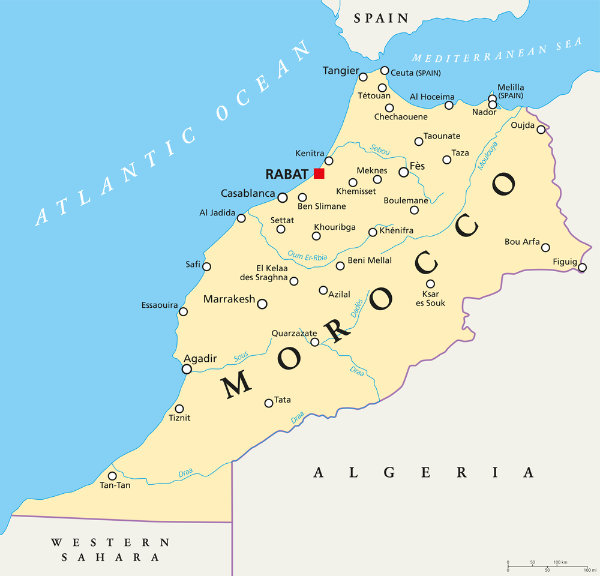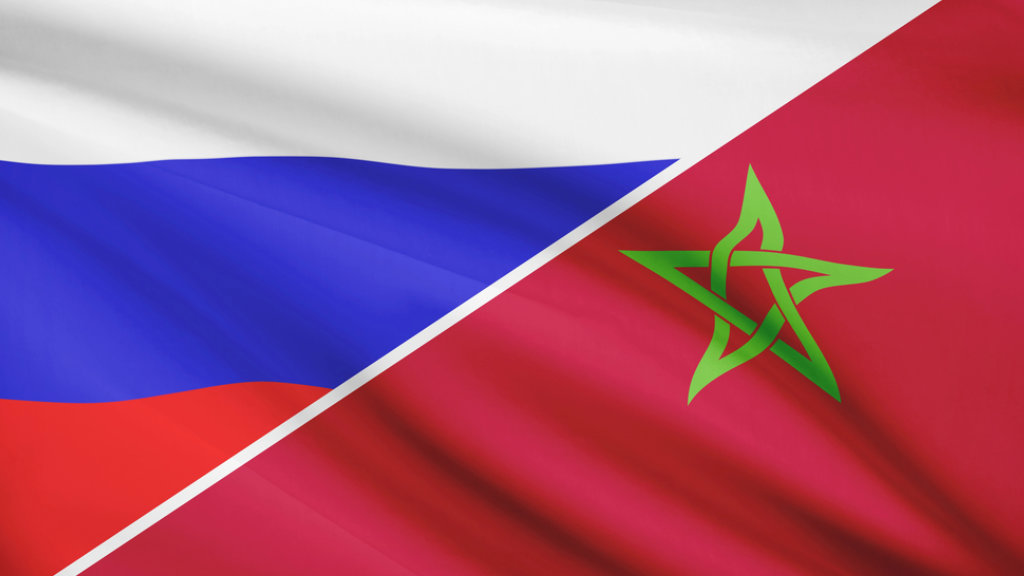Russia’s Foreign Minister Sergey Lavrov has been in New York attending the annual UN General Assembly. During the UN events, several other bilateral meetings were held as numerous countries wish to discuss current affairs with Moscow. Lavrov subsequently met with Nasser Bourita, Morocco’s Minister of Foreign Affairs and African Cooperation.
The ministers focused on priorities related to advancing the traditionally friendly relations between Russia and Morocco. They confirmed their countries’ shared intent to maintain effective foreign policy coordination in the interests of ensuring regional and international security and stability. They also stressed the need to settle crises persisting in the MENA region and the Sahara-Sahel area through political and diplomatic means based on the fundamental principles and norms of international law, while recognising the central role of the United Nations.

Amid Russia’s efforts to mitigate revenue losses from decreased trade levels with the West, Moscow has actively re-engaged with the African continent. Seen as a part of the vast Global South, Greater Africa offers numerous opportunities for Russian companies seeking new markets and export manufacturing capabilities. In Africa, Russia’s economic interests are also neatly merged with global geopolitical shifts. Moscow is pushing for the creation of a multipolar world order and for the Kremlin, the African continent presents a good opportunity to tilt the balance of power away from the collective West, dragged down by a toxic colonial legacy and perceptions of unfair trade and investment practices that have left little on the table for the Africans themselves.
Russia is also keen on wooing African countries to develop a bloc of votes at the United Nations to fend off American policies. While Morocco is not the biggest trade or investment partner for Russia, the country’s geopolitical importance has been growing and it sits on some of the world’s largest raw material deposits. Expanded ties with Morocco would give Russia an additional tool to help re-shape the shifting balance of power in Sahel where French influence is in decline and a power vacuum is emerging. Elsewhere, renewed Russian involvement in North Africa is apparent with Egypt recently joining the BRICS grouping, while Algeria and Tunisia have expressed interest.
Morocco has also become a new preferred tourism destination for Russian nationals now feeling uncomfortable with European vacations. Direct flights are now operated between Morocco and Russia with tourism numbers reaching record highs in 2023.
Trade
Morocco is Russia’s third biggest trade partner amongst African countries after Egypt and Algeria. Russia’s exports to Morocco in 2022 amounted to US$1.93 billion (an increase of 65% compared to 2020) or 11.2% of the total trade Russia had with the African continent.
Russia’s trade with Morocco is significant as it constitutes a sizeable part of Russia’s overall commerce with the African continent.
Russian importers are traditionally interested in grapes, citrus fruits, nuts and cocoa beans from Morocco and other North and East African countries. Morocco maintains close ties with particular regions of Russia. For instance, trade between the Russian Republic of Bashkortostan, a traditionally ethnic Turkic region, and Morocco increased 30-fold over the past five years. Various autonomous regions of Russia have been selectively astute in developing trade partners that fit mutual needs.
Overall, Russia’s exports to Morocco mainly consist of oil, diesel, coal and inorganic chemicals. There are increasing exports of fertilizers, stone and plaster materials, aluminium, and cereals among related products. Russia imports fruits and nuts, and light industry products in addition to lumber, cars, veterinary vaccines, and IT services.
Overall, Russian grain suppliers are particularly interested in Morocco as the country is among top African importers of wheat. For example, Morocco announced that by 2024 it would be importing about 2.5 million tons of wheat. However, a major hindrance to Russia’s exports are the customs duties – which can be as high as 40% for some products.
For Russian companies, one of the strategies used to mitigate against this is to establish joint ventures in Morocco, which are granted more favourable conditions. The main advantage for companies opening production in Morocco, is the possibility of further export to the countries that Morocco has free trade zone agreements with. Morocco has preferential trade agreements with 62 countries and is a member of the African Continental Free Trade Agreement (AfCFTA) which reduces intra-African trade tariffs on 95% of all products within various phased in timescales. Rabat ratified this in April 2022.
Morocco is also a member of the Greater Arab Free Trade Area which also includes Bahrain, Egypt, Iraq, Kuwait, Lebanon, Libya, Oman, Qatar, Saudi Arabia, Sudan, Syria, Tunisia, and the United Arab Emirates. Other notable FTA include agreements with Jordan and Turkiye.

 Русский
Русский













